MileValue is part of an affiliate sales network and receives compensation for sending traffic to partner sites, such as CreditCards.com. This compensation may impact how and where links appear on this site. This site does not include all financial companies or all available financial offers. Terms apply to American Express benefits and offers. Enrollment may be required for select American Express benefits and offers. Visit americanexpress.com to learn more.
Note: Some of the offers mentioned below may have changed or are no longer be available. You can view current offers here.
Yesterday I reported that some Delta domestic awards cost only 5,000 SkyMiles one way, a 60% discount on the prevailing 12,500 mile rate we expect from legacy carriers. Other routes cost 10,000 SkyMiles one way. From playing around on delta.com, I’ve discovered a few more things.
- So far, there are no known 5k segments that can be combined onto one award, so we don’t know how that would price.
- Combine a 5k segment and a 10k segment, and you get a 10k award.
- Combine a 5k segment and 12.5k segment, and you get a 12.5k award.
- Combine a 10k segment and 12.5k segment, and you get a 12.5k award.
- City pairs do not have a price. Segments have a price. (Explained below.)
- All 5k and 10k awards are only bookable for flights through December 31, 2015.
Segments Have a Price, Not City Pairs
- A “city pair” is your departing and arrival city no matter how many stops you have in between.
- A “segment” is one wheels up and wheels down of an airplane.
The 5k and 10k prices we’ve uncovered on delta.com are for segments, not for city pairs. How do I know? Portland/San Francisco as a city pair doesn’t have just one price. The direct flight costs 12,500 miles. The routing via Seattle costs 10,000 miles.
Why is that? Because Delta has clearly assigned prices to each segment.
- The Portland-to-San-Francisco segment costs 12,500 SkyMiles as we can see above.
- The Portland-to-Seattle segment costs 5,000 miles.
- The Seattle-to-San-Francisco segment costs 10,000 miles.
Proof SEA-SFO segment is 10k:
When you fly a connecting domestic Delta award itinerary in which one segment prices at one price and the other at another, you just pay the higher segment price.
That’s why PDX-SFO is 12,500 miles and PDX-SEA-SFO is 10,000 miles.
You can see this rule over and over if you try to combine a 5k and 10k segment, a 5k and 12.5k segment, or a 10k and 12.5k segment.
For instance, San Diego to Sacramento prices at 10,000 miles via Los Angeles.
That’s because the San Diego-to-Los-Angeles segment costs 10,000 miles, the Los-Angeles-to-Sacramento segment costs 5,000 miles, and delta.com goes with the higher price on connecting itineraries.
This logic implies that combining two 5k segments would cost just 5,000 total miles. Unfortunately we can’t test that because no two current 5k segments can be combined into a legal route.
I tried to combine the Sacramento-to-Los-Angeles and Los-Angeles-to-San-Jose 5k segments, but that’s not a legal routing, so I got this error.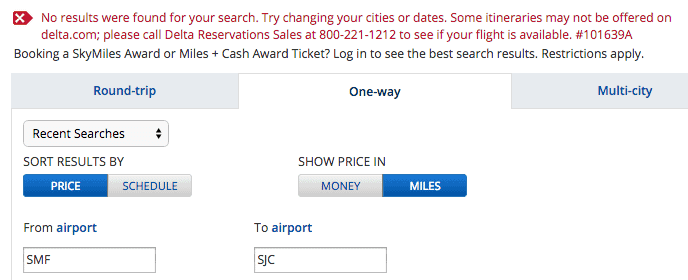
All the 5k and 10k segments disappear after December 31
When Delta first made some SkyMiles awards 10,000 miles in March, they put out a press release and said that the discount was for awards flown by December 31, 2015 only. That rule appears to still be in place for both the 5k and 10k awards.
San Diego to Los Angeles only offers 10k awards until December 31, and the best price after that is 12,500 miles.
Similarly, Seattle to Portland jumps to 12,500 miles from 5,000 miles after December 31.
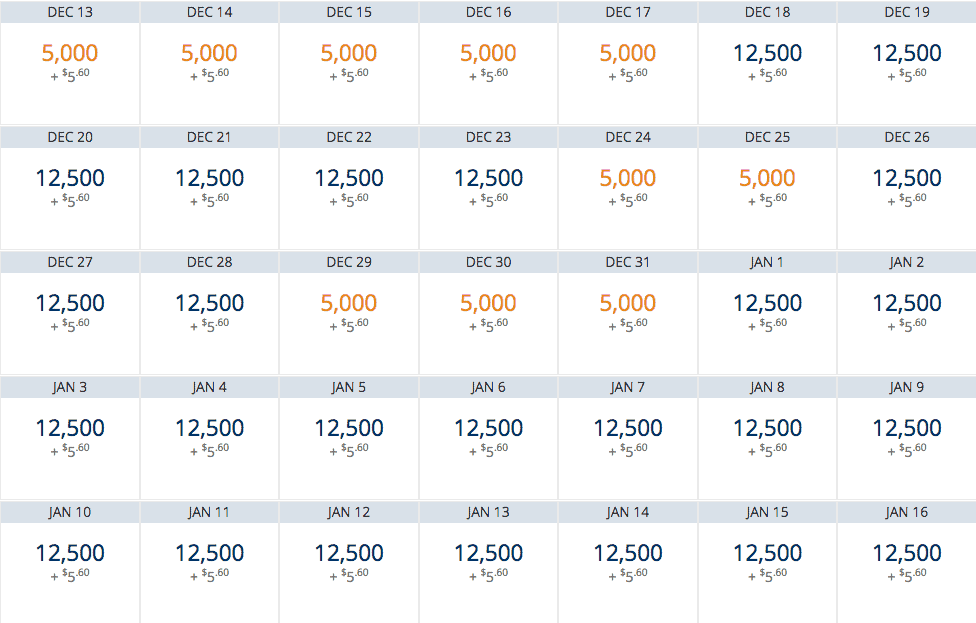
That’s everything my digging has uncovered:
- So far, there are no known 5k segments that can be combined onto one award, so we don’t know how that would price.
- Combine a 5k segment and a 10k segment, and you get a 10k award.
- Combine a 5k segment and 12.5k segment, and you get a 12.5k award.
- Combine a 10k segment and 12.5k segment, and you get a 12.5k award.
- City pairs do not have a price. Segments have a price.
- All 5k and 10k awards are only bookable for flights through December 31, 2015.
Do you have any questions? Have you uncovered anything else?




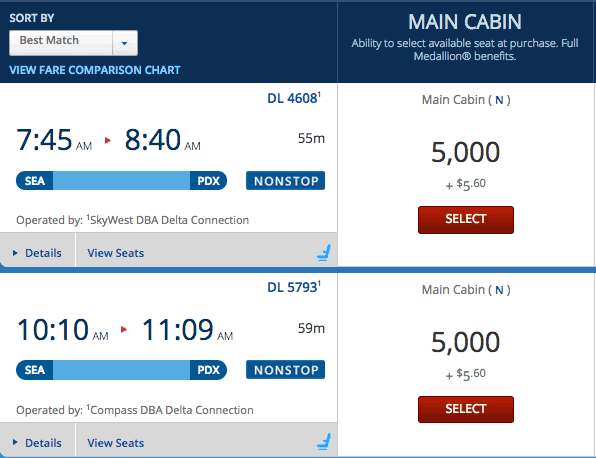

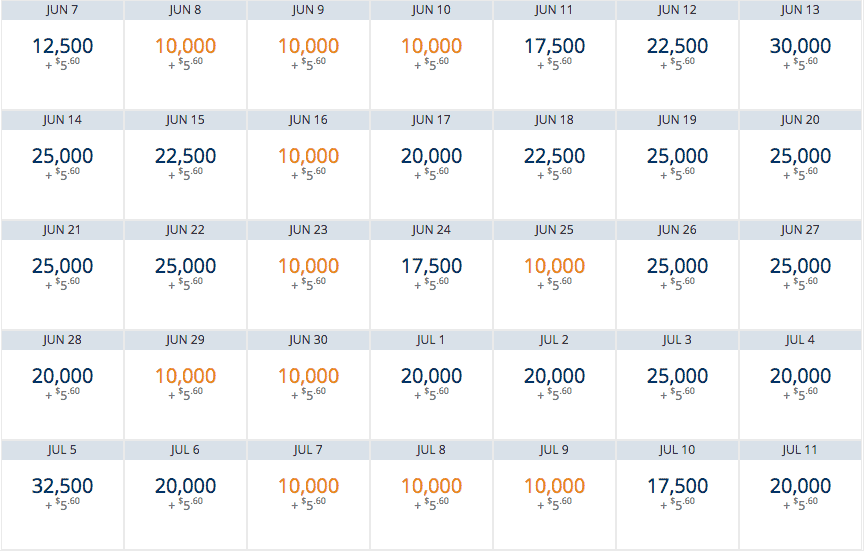

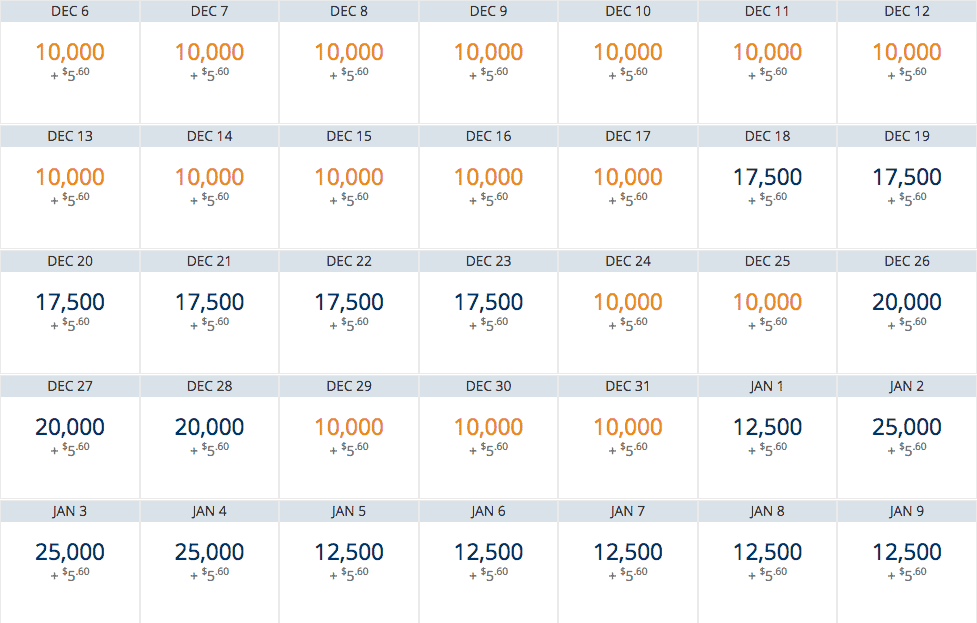
If you combine 3 x 10k segments, would it still price out at 10k ?
Probably. Do you see three that can combine?
If you combine 3 x 10k segments, would it still price out at 10k ?
Probably. Do you see three that can combine?
[…] Taken from Mile Value: […]
[…] Taken from Mile Value: […]